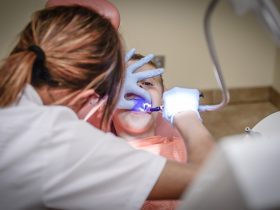Healthcare, before the pandemic, was not the most prioritized expenditure, in a general view of things. In retrospect, at a very people level, our health was generally the least of our worries, both physical and mental. But the sudden entrance of Covid-19 immediately diverted our attention from all otherworldly matters. It certainly made us rethink our priorities at all levels and perhaps forever changed the way we do everything.
This pandemic was certainly a game-changer for the healthcare industry; everything relied on it to keep the world afloat. A lot of investments have been directed towards this sector in hopes of quickly ridding the world of this virus, and in a very short span, we have seen lots of changes in this sector, most of them positive. It has expanded greatly as the world cheers it on, and today we’ll look at the changes it has seen as a result of this pandemic.
- Administration
The public health sector saw one of the most rapid expansions in the wake of this pandemic. With the virus spreading so rapidly, the responsibility came upon healthcare professionals to offer informed decisions and advice to the public as quickly as they could. Every government’s next move relied on the words uttered by them. They needed to show leadership and reliable knowledge to navigate safely in times of crises, and for new personnel on the ground, it’s good to upskill. An accessible degree like an online MHA no GRE is a good way to keep learning while maintaining social distance and carrying on with your other duties. This allows healthcare professionals to study the pandemic more deeply and give better solutions.
The veterans of this industry showed a lot of responsible action with this virus and put in a lot of effort towards research. They rethought their strategy of communication, and it can be safely said that a great percentage of the population is now connected to the healthcare industry better than ever before. Hence, online education has become a more prominent part of today’s era, specially among healthcare professionals.
- Research and Development
We can safely say that the R&D department in the healthcare industry has seen great, if not the greatest, expansion. The world was looking at them to quickly get their hands on the vaccine for this virus, and in this desperation, a lot of attention and effort has been directed towards it. Due to the need of the hour, funds for labs have been multiplied to help them get all the resources they need. This support has not only aided the search for the vaccine but has also opened avenues for research to remain prepared in the face of another outbreak. This has also resulted in an improvement in the working methods of big pharma companies to increase their manufacturing efficiency. Companies have improved their technology to manufacture much-needed medicine at a massive scale.
- Hospitals
You would expect that with a pandemic, hospitals’ funding would increase greatly. However, they declined sharply in the first quarter of 2020, primarily because of them declining patients’ elective admission. Social distancing and mobility restrictions placed by governments around the world have resulted in decreased business and spending. Out of fear of the virus’s contagious nature, many with illnesses chose to say home.
However, as the virus spread, hospital admissions saw an overwhelming burden, with countries such as India running out of beds, ventilators, and oxygen tanks to treat patients. This jolted the manufacturing industries into overdrive and encouraged mass manufacturing of beds and ventilators for hospitals. It also encouraged hospitals to remodel their way of treatment while expanding spaces. Governments across the world have turned their attention towards better emergency facilities as the virus spread far and wide.
- Innovations In The Industry
Necessity is indeed the mother of all inventions and innovations. In such a time of emergency, scientific minds came through to help keep the industry at par with the challenges of the time. With drones so easily available, and the world observing social distancing, companies like Zipline used them to deliver medical supplies in North Carolina. It has given rise to telemedicine; healthcare workers have found effective ways to administer treatment remotely.
Around the world, it became imperative to effectively detect the virus. Students employed AI to do their bidding to increase the efficiency of detecting the virus. All it does is use CT scans of the lungs to diagnose the virus and its exact severity to help doctors go forward with their treatment accordingly.
- Policies
With healthcare as the primary priority in this time, policies have been enacted to expand the healthcare industry. For one, governments have incentivized the manufacturing industry into increasing production for more ventilators. Governments around the world have funded labs to make vaccines accessible to everyone and encouraged people to get themselves vaccinated.
However, with the damage that this pandemic has done to the world’s economy, governments are looking to make new policies that help them stay prepared for another pandemic, should one arise. For one, governments have now formed special wings to monitor public health more closely. They are now using technology like AI and mathematical models to observe and predict trends, enabling timely action for any irregularities. In many countries, this model helped enact ‘smart lockdowns’ to curb the spread of the virus while not enforcing a complete lockdown. Lockdowns are scaled down to communities and localities with a large positivity ratio to curb the spread. More hospitals are being constructed, and research has become a hot contender for government funds. These are small measures that will help them stay prepared.
This pandemic completely caught the world off-guard, and it did do a lot of damage in the socio-economic sector. However, the healthcare industry worked around the clock to tackle this threat. This pandemic showed the glaring faults in our approach, and it helped the industry get back up and learn from those mistakes. In terms of research, engineering, and administration, the industry has expanded, with lots of people having access to medical care. It is now up to authorities to remain vigilant and prepared by helping this industry expand to its potential.







